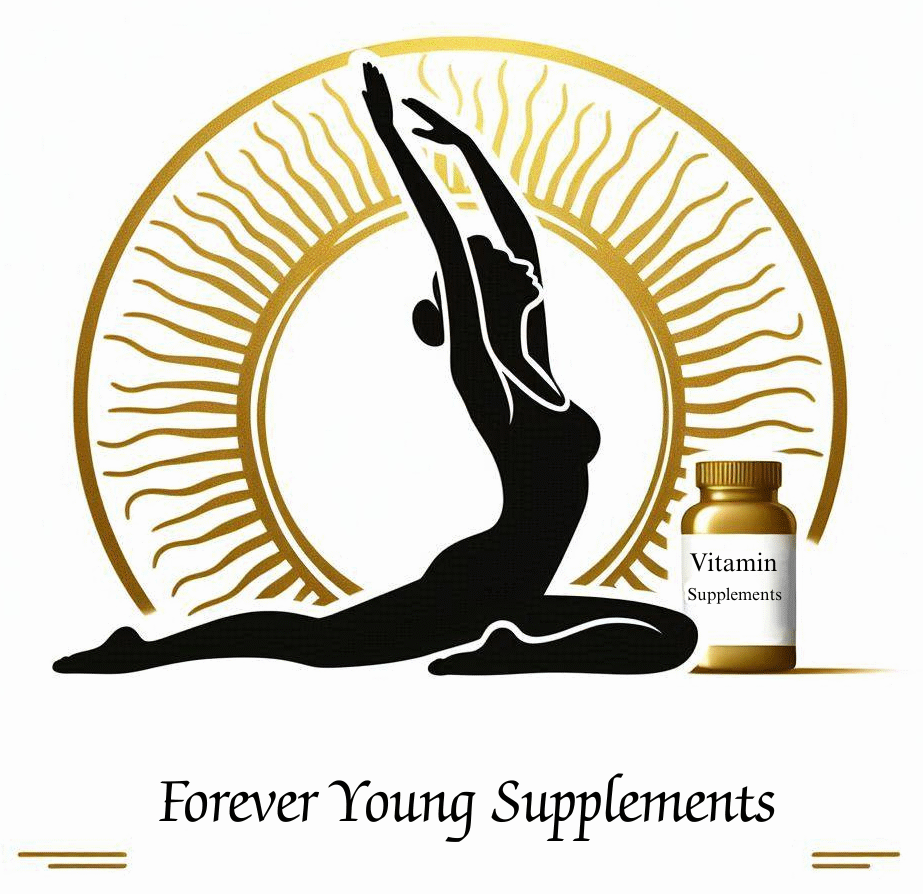Tablets, Liquids, Or Gummies? Choosing The Best Supplement Form
As we age, maintaining optimal nutrition becomes one of the keys to staying energetic, resilient, and mentally sharp. Supplements can play a valuable role in filling nutritional gaps — but not all supplements are created equal, and neither are the forms they come in.
Should you swallow a tablet, sip a liquid, mix a powder, or chew a gummy? The form of a supplement can affect everything from absorption rate and ease of use to long-term consistency. In this in depth review, I will explore the science and practicality behind different supplement forms with the aim of helping you make an informed choice that fits your lifestyle and health goals.

Understanding Supplement Forms: What Every Health Conscious Adult Should Know
The Variety of Supplement Forms
Today’s supplement market offers more choice than ever. Pills and tablets remain the most common, but liquids, powders, and gummies have surged in popularity. Each form has unique strengths and weaknesses, often tied to digestion, convenience, and absorption.
- Tablets and Capsules: Compact, shelf-stable, and familiar, tablets remain a trusted choice for many adults. Capsules (gelatin or plant-based) are similar but may dissolve faster.
- Liquid Supplements: These are absorbed quickly because they bypass much of the body’s digestive breakdown process. These are often favored by older adults or those with digestive challenges.
- Powdered Supplements: Designed to mix with water, juice, or smoothies, powders allow for flexible dosing and can deliver higher nutrient concentrations.
- Gummy Vitamins: Designed for ease and enjoyment, gummies offer a flavorful and chewable alternative — especially popular among people who dislike pills.
What Influences Supplement Form Choice?
The “best” form often depends on personal and physiological factors:
- Digestive comfort: Liquids and powders can be easier on sensitive stomachs.
- Swallowing ability: Gummies and liquids suit those with difficulty swallowing.
- Lifestyle and habits: Tablets are portable and powders fit into smoothie routines.
- Absorption and bioavailability: Certain nutrients (like B12 or collagen peptides) may be better absorbed in liquid or powder form.
Myths and Misconceptions
- Myth: “Liquids and powders always absorb better.”
Absorption depends on nutrient type and formulation quality, not just the form. - Myth: “Gummies aren’t real supplements.”
They can be effective if well formulated and taken consistently. - Myth: “Tablets are outdated.”
Tablets remain reliable, cost-effective, and stable, especially for vitamins and minerals.
Understanding these distinctions sets the stage for smarter supplement choices — especially as our nutritional needs change with age.
Liquid Supplements vs. Gummies: Which Reigns Supreme?
The supplement world has seen a surge in two particularly popular forms: liquids and gummies. Both appeal to people who dislike swallowing pills, but they are not created equal. Let’s weigh their pros and cons.
Liquid Supplements
Advantages:
- Rapid Absorption: Liquids don’t require breakdown in the stomach, making nutrients readily available.
- Adjustable Dosage: Liquids allow flexible dosing. You can take smaller or larger amounts as needed.
- Gentle on Digestion: Ideal for people with sensitive stomachs or reduced stomach acid.
Disadvantages:
- Shorter Shelf Life: Liquids may lose potency faster than solid forms.
- Taste Issues: Some liquid supplements have strong flavors.
- Less Portable: Bottles are bulkier and need careful handling.
Best For: Older adults with swallowing difficulties or those needing fast-acting nutrients (e.g., B vitamins, iron).
Gummy Vitamins
Advantages:
- Taste and Enjoyment: Makes supplementation pleasant, improving consistency.
- Ease of Use: Chewable and appealing; no water required.
- High Compliance: People are more likely to stick with them long term.
Disadvantages:
- Added Sugar: Some gummies contain sugar or sweeteners.
- Limited Nutrients: Not ideal for minerals like calcium or magnesium.
- Lower Potency: Doses are often smaller to maintain texture and flavor.
Best For: Those who struggle with pills and prefer a simple, tasty option.
The Verdict
If you prioritize absorption and potency, liquids may have the edge. If enjoyment and consistency matter most, gummies are the winner. Choose the one that helps you stay consistent.
Pills, Powders, and Liquids: A Detailed Comparison
Now let’s look at the three most traditional supplement formats: pills/tablets, powders, and liquids.
Tablets and Capsules
Pros:
- Precision: Each tablet delivers a consistent dose.
- Affordability: Usually the most cost-effective form.
- Portability and Shelf Life: Compact and long-lasting.
- Advanced Coatings: Newer tablets improve absorption and protect the stomach.
Cons:
- Swallowing Difficulty: May be hard for older adults.
- Slower Absorption: Nutrients release after tablet breakdown.
- Digestive Irritation: Some formulas can upset sensitive stomachs.
Powder Supplements
Pros:
- High Concentration: Powders can deliver larger doses of nutrients like collagen, protein, or greens blends.
- Customizable Dosing: Easily adjust amounts to suit your needs.
- Fast Absorption: Especially effective when mixed with water or smoothies.
- Digestive Ease: Often free from fillers and coatings found in tablets.
Cons:
- Taste and Texture: Some powders can be chalky or have strong flavors.
- Preparation Time: Requires mixing; not as quick as swallowing a pill.
- Storage: Must be kept dry and sealed to avoid clumping.
Best For: People who enjoy smoothies, prefer flexible dosing, or want to combine nutrients in one drink.

Liquid Supplements
Pros:
- Quick absorption and easy on digestion.
- Ideal for targeted vitamins like B12 or D3.
- Great for those with swallowing or digestive issues.
Cons:
- Higher cost per dose and shorter shelf life.
- Taste varies; some require refrigeration.
Making the Right Choice
- Choose Tablets/Capsules if you prefer convenience and cost efficiency.
- Choose Powders if you like mixing drinks and want higher doses or flexible nutrition.
- Choose Liquids if you want fast absorption or have digestive limitations.

You may also combine forms — for example, a liquid multivitamin in the morning and a powdered protein or collagen in your smoothie later in the day.
Chewing, Mixing, or Swallowing: What’s the Optimal Method?
How the Body Handles Each Form
- Chewing (Gummies): Digestion begins in the mouth; enzymes help break down nutrients early.
- Mixing (Powders): Nutrients are already dissolved when consumed, aiding quick absorption.
- Swallowing (Tablets): Nutrients release gradually during digestion.
- Sipping (Liquids): Nutrients enter the bloodstream faster, often bypassing parts of digestion.
Absorption Insights
- Gummies and Liquids: May absorb quickly but can be less nutrient-dense.
- Powders: Offer strong absorption and versatility when mixed with food or drinks.
- Tablets: Provide steady, timed absorption when well formulated.
Real-Life Scenarios
- For seniors with chewing or swallowing issues, powders and liquids are easiest.
- For travelers or minimalists, tablets are the simplest.
- For those building a wellness routine, combining a powder smoothie and capsule regimen can offer the best of both worlds.
Achieving Maximum Effectiveness: Supplement Intake Strategies
Taking the right supplement form is only part of the equation. How and when you take your supplements dramatically influences their effectiveness.
Understanding Bioavailability
Bioavailability measures how much of a nutrient your body actually uses. It varies by form and context:
- Fat-soluble vitamins (A, D, E, K): Take with healthy fats like avocado or olive oil.
- Water-soluble vitamins (C, B-complex): Best absorbed on an empty stomach with water.
- Minerals: Calcium and magnesium can compete for absorption — take them at separate times.
Powders and liquids sometimes offer higher bioavailability because nutrients are pre-dissolved. However, high-quality tablets can be equally efficient when designed with proper coatings.
Best Practices
Pair with the Right Foods: Match supplement type to meal composition.
Stay Hydrated: Helps tablets dissolve and improves nutrient transport.
Mind Timing:
- Morning: Multivitamins and energy nutrients (B12, vitamin C).
- Evening: Minerals like magnesium for relaxation.
Measure Accurately: Over-scooping powders can exceed safe doses.
Consistency is Key: Long-term, daily use creates the biggest benefits.
Supplement Combinations and Finding Your Ideal Form
Combinations to Avoid
Some supplements can interact negatively:
- Iron + Calcium: Compete for absorption.
- Zinc + Copper: Excess zinc can cause copper deficiency.
- Vitamin K + Blood Thinners: May affect clotting.
- High-dose Vitamin C + Certain Medications: Can reduce drug effectiveness.
If you take multiple supplements or prescriptions, consult a healthcare provider to ensure safety.
Tablets, Liquids, Powders, or Gummies — Which Wins?
Each form can be the “superior” choice depending on your health goals:

Personal Fit
Your best supplement form is the one you’ll take consistently and comfortably. The most effective routine is one that integrates seamlessly into your day — whether it’s a morning smoothie with collagen powder, a midday gummy, or an evening capsule.

Final Recommendations
- Assess your lifestyle: Do you travel, meal-prep, or prefer drinks?
- Choose quality over convenience: Third-party testing and clean ingredients matter most.
- Don’t mix conflicting nutrients: Space out calcium, iron, and certain vitamins.
- Stay consistent: Long-term results depend on steady habits.
Conclusion: Empowering Smarter Supplement Choices
Whether you choose to chew, sip, mix, or swallow, the goal is the same — to support your body’s vitality, energy, and longevity. Tablets, liquids, powders, and gummies each have unique advantages, and the “best” one depends on your comfort, preferences, and health priorities.
For older adults especially, ease and enjoyment matter as much as nutrient content. The ideal supplement is one you look forward to taking — because consistency is what truly drives results.
At Forever Young Supplements, I believe that wellness should be simple, effective, and enjoyable — no matter the form it takes. By understanding how each supplement form works, you can make every dose count toward a healthier, more vibrant you.


That was an informative and balanced piece, Saschi. You explained each supplement form so clearly that even someone new to wellness could follow along. I liked how you connected the science to real-life habits; that’s what makes the advice feel practical. I personally have stopped using added sugars recently, and I’m loving it now.
I’ve always preferred tablets because they’re easy to store, but your point about absorption got me thinking; do you think liquids or powders are really worth the extra cost for someone with no digestive issues? In my village, we say, the stomach doesn’t argue with what feeds it.
John
Thank you so much for your thoughtful comment John and I am glad to hear the article resonated with you. It’s great that you have cut out added sugars and are already feeling the benefits; even small changes like that can make a meaningful difference over time.
Regarding your question about whether liquids or powders are worth the extra cost if you don’t have digestive issues: in most cases, tablets are perfectly adequate for individuals with healthy digestion. Your body generally does a fine job breaking them down, and reputable brands design their tablets to dissolve efficiently.
Liquids and powders mainly offer value in three situations:
When rapid absorption is a priority (e.g., certain minerals or vitamins needed quickly).When the dose needed is higher than what fits comfortably in a tablet.For people who struggle with swallowing pills or have absorption challenges.
If none of these apply, tablets often remain the most economical and convenient choice and good to know that your villagehas a saying that captures this perfectly.
Still, it is always smart to stay curious about how different formats might fit your lifestyle or goals. If you ever try a liquid or powder, you’ll be able to compare how you feel firsthand.
Thanks again for engaging so thoughtfully with the topic!